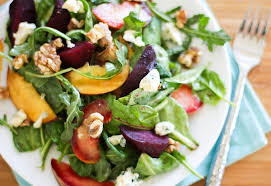Many Household across the world have had mothers and
grandmothers talk about an important purplish- red vegetable, Beet Root. The Beet Root has many uses
in natural healing.
Blood Pressure and Improve Blood Flow - A study funded by the British Heart Foundation and is
published online in the American Heart Association journal Hypertension show that beets lower blood pressure and help to fight
heart disease. Beets contain naturally occurring nitrates – nitrates are
compounds which improve blood flow throughout the body – including the brain,
heart, and muscles. These natural nitrates increase a molecule in the blood
vessels called nitric oxide, which helps widen arteries and lower blood
pressure by allowing more oxygen to flow.
Natural Viagra - Beets contain high amounts of boron, which
is directly related to the production of human sex hormones. Ancient Romans
used beet root as an aphrodisiac because the nitrates helps release nitric
oxide into the body, widening the blood vessels, and increasing blood flow to
the genitals – a mechanism that medicines like Viagra seek to replicate.
Nutrient Packed - Potassium, magnesium, soluble fiber,
phosphorus, iron, vitamins A, B, C; beta-carotene, betacyanin, folic acid,
carbohydrates, protein and antioxidants.
Cleansing - A wonderful tonic for the liver purifies the
blood.
Mental Health - Beets contain betaine, the same substance
that is used in some treatments of depression. Also contains, trytophan which
relaxes the mind and creates a sense of well-being similar to chocolate.
Brain and Dementia - Beet Root increases blood flow to the
brain in older people which may be able to fight the progression of dementia.
Stamina and Energy - The nitrate content helps dilate the
arteries thereby helping in the proper transportation of oxygen to various
parts of the body increasing a person’s energy, and the high iron helps with
stamina.
Cholesterol - Beets naturally contain betacyanin. Betacyanin
can reduce the oxidation of LDL (BAD)
cholesterol and not allow plaque to deposit on the walls of the artery. This
can protect the heart from potential heat attacks and stroke.
Romans used it as an aphrodisiac; the Indians used it for
conditions like anemia and fatigue. One of the key ways to start to identify
how plants can benefit you is by examining their color, shape and design (both
external and internal). If we notice the red color of beets, that can be a clue
to blood. If we examine the structure
from the red bulb to red stem to the vein-type of leaves, we can see the
cardiovascular system pumping blood into the veins. Nature can tell us so much about how to
support our health.
So, how will you use beets? Perhaps you’ll have a healthy salad,
snack, dips, soups or addition to your smoothie? I love just heading down the
aisles here at work and grabbing a few beets for my salads. Or when I’m on the
go, grabbing a capsule version by Nature’s Way. I have to say that I might have
a slight addiction to the red beet eggs from the deli here at The Healthy
Grocer. Keep in mind, when we
eat colorful foods we might have colorful output.
Here’s a healthy recipe option
that you can pick up at The Healthy Grocer:
Beet Root Salad
2 Organic jumbo eggs hard boiled- sliced
1 cup Beetroot – chopped
¾ cup Yellow pepper – chopped
½ cup Sprouted beans and lentils
2 handfuls of mixed salad leaves – washed and drained
6 Walnut halves
Sea Salt to taste
Dressing 
2/3 cup natural organic yogurt
1 tsp fresh dill – finely chopped
1 tsp horseradish
2 tbs fresh lemon juice
What’s next…?
Mix the dressing ingredients together.
Boil the eggs.
Place the leaves on a plate, Mix the beetroot, peppers and
sprouted beans and place on the leaves. Cut the egg into halves and place on
the beetroot mix with the walnuts.
Top with the dressing and serve immediately.
Toast the rye bread and add the topping of your choice.
- Mona Claypoole, Director of Marketing and Wellness Support
